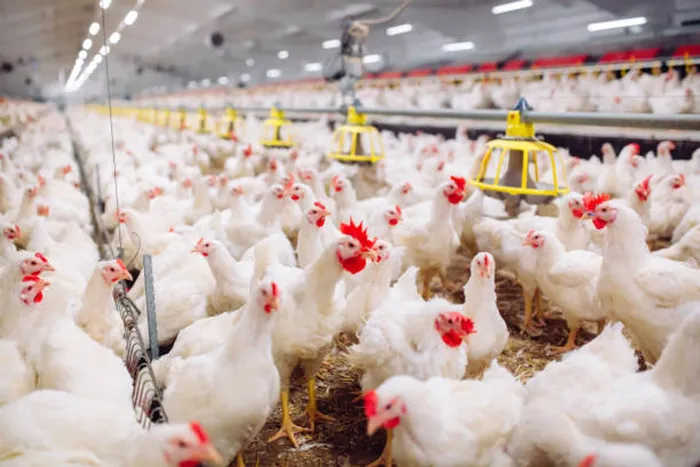
Brazil announced the bird flu outbreak at the end of last week. As a result, the Department of Agriculture is expected to ban the import of all fresh and frozen chicken from Brazil.
Image: File picture
By Izaak Breitenbach
South African poultry producers have the capacity to make up for the loss of Brazilian chicken meat imports due to an outbreak of avian influenza (bird flu) in that country.
We are currently producing about 21.5 million chickens per week, and the industry has the capacity to increase this by about another million birds per week.
As the winter months are a period of lower demand for chicken, the additional supply should be sufficient to ensure there are no shortages of chicken meat, or price increases because of shortages.
Brazil announced the bird flu outbreak at the end of last week. As a result, the Department of Agriculture is expected to ban the import of all fresh and frozen chicken from Brazil.
Brazil has no compartmentalisation agreement with South Africa, which would have allowed imports from other parts of Brazil except the region(s) or province(s) affected by the outbreak.
South African producers supply more than 80% of the chicken consumed in country. Brazil supplies most of the chicken imports, which equated to 18% of local production last year.
If there is a problem following a ban on Brazilian imports, it will concern mechanically deboned meat (MDM), not fresh or frozen chicken meat. MDM is a paste used in the production of processed meats such as polony and sausages; it is not made in any large quantities in South Africa.
MDM accounts for about 60% of our poultry imports from Brazil. The second largest category is offal– products such as chicken heads, feet, gizzards and livers. A far smaller proportion – 4.5% of Brazilian imports – comprises bone-in chicken portions such as leg quarters, thighs, drumsticks and wings.
It is worth noting that Brazil has no compartmentalisation agreement with South Africa because it is up to Brazil to apply for this, and it has not done so. This is despite increasing numbers of infections in Brazil since 2023 in wild birds, which carry the disease.
The Department of Agriculture has rejected suggestions that, should bird flu break out in Brazil, South Africa should allow MDM imports on condition that the MDM is used only in products that will be cooked or heat treated, which will kill the virus.
The department has said it will not allow the importation of potentially infected chicken products. SAPA agrees with the position not to allow the importation of poultry products that will place our local industry at risk from any infectious disease such as bird flu.
Whether Brazil’s bird flu outbreak can be confined to the one facility where it occurred remains to be seen. The spread of the virus in Europe and the United States shows that culling is proving ineffective in stamping out any outbreak.
That is why vaccination is increasingly being seen as an essential tool in efforts to prevent disastrous outbreaks such as South Africa experienced in 2023.
The impact of a ban on Brazilian chicken imports will not be felt immediately. Chicken imports from Brazil can take about six weeks to reach South Africa and product dispatched before the ban is implemented will not be affected.

Izaak Breitenbach is the CEO of SAPA’s Broiler Organisation.
Image: Supplied
* Izaak Breitenbach is the CEO of SAPA’s Broiler Organisation.
** The views expressed do not necessarily reflect the views of IOL or Independent Media.